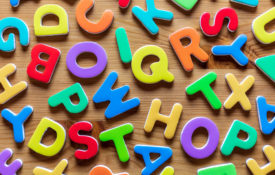-

What’s in a Word? Computational Modeling Puts the Science of How We Learn Language to the Test
Language, whether spoken or read, is a tool that is constantly changing and growing, but research demonstrates that it may still be possible to pin down how it functions at its core.
-
The Challenge of Waiting, in Any Culture
Fifty years ago, Walter Mischel and colleagues wanted to measure how well young children could resist temptation. He invented the famous “marshmallow” test. Children could either eat one marshmallow right away or wait 15 minutes
-
Culture Affects Kids’ Ability to Delay Gratification
Overcoming impulses to enjoy immediate rewards in order to get later benefits is fundamental to achieving goals. Researchers often measure the delaying of gratification with well-known “marshmallow task,” in which children must resist the urge
-
U.S. Kids Are Falling Behind Global Competition, but Brain Science Shows How to Catch Up
On vital measures that predict later success in school and life, small children in the U.S. do worse than kids in comparable countries. This distressing information comes from an Organisation for Economic Cooperation and Development (OECD) study of
-

New Content From Perspectives on Psychological Science
A sample of articles on children’s development, unobtrusive measure of discrimination, well-being, selfishness, a model for mental-health interventions, gender differences, psychedelic drugs and social connection, neoliberalism and equity beliefs, mixed emotions, and adopted utility calculus.
-
Science Shows How to Protect Kids’ Mental Health, but It’s Being Ignored
Young people in the United States are experiencing a mental health crisis. Warnings from the surgeon general, the American Academy of Pediatrics, the American Psychological Association and other prominent organizations, as well as regular news reports, highlight

